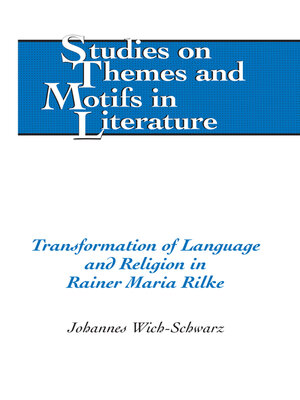Transformation of Language and Religion in Rainer Maria Rilke
ebook ∣ Studies On Themes and Motifs In Literature
By Horst Daemmrich

Sign up to save your library
With an OverDrive account, you can save your favorite libraries for at-a-glance information about availability. Find out more about OverDrive accounts.
Find this title in Libby, the library reading app by OverDrive.



Search for a digital library with this title
Title found at these libraries:
| Library Name | Distance |
|---|---|
| Loading... |
Rainer Maria Rilke (1875-1926), perhaps the most famous European poet of the twentieth century, exemplifies how the «crisis of language» inherent in literary Modernism also constitutes a crisis of religious discourse. In Rilke's poetry and prose, language replaces God as the focal point of human experience. Yet despite his rejection of Christianity, Rilke crucially draws on Christian imagery to express his Modernist worldview. Transformation of Language and Religion in Rainer Maria Rilke offers new readings of major texts such as The Notebooks of Malte Laurids Brigge and The Duino Elegies, as well as analyzing some of Rilke's lesser-known works, Visions of Christ and «The Letter of the Young Worker.»







